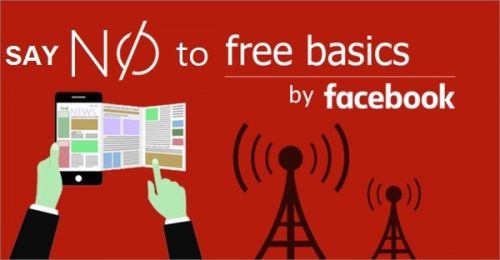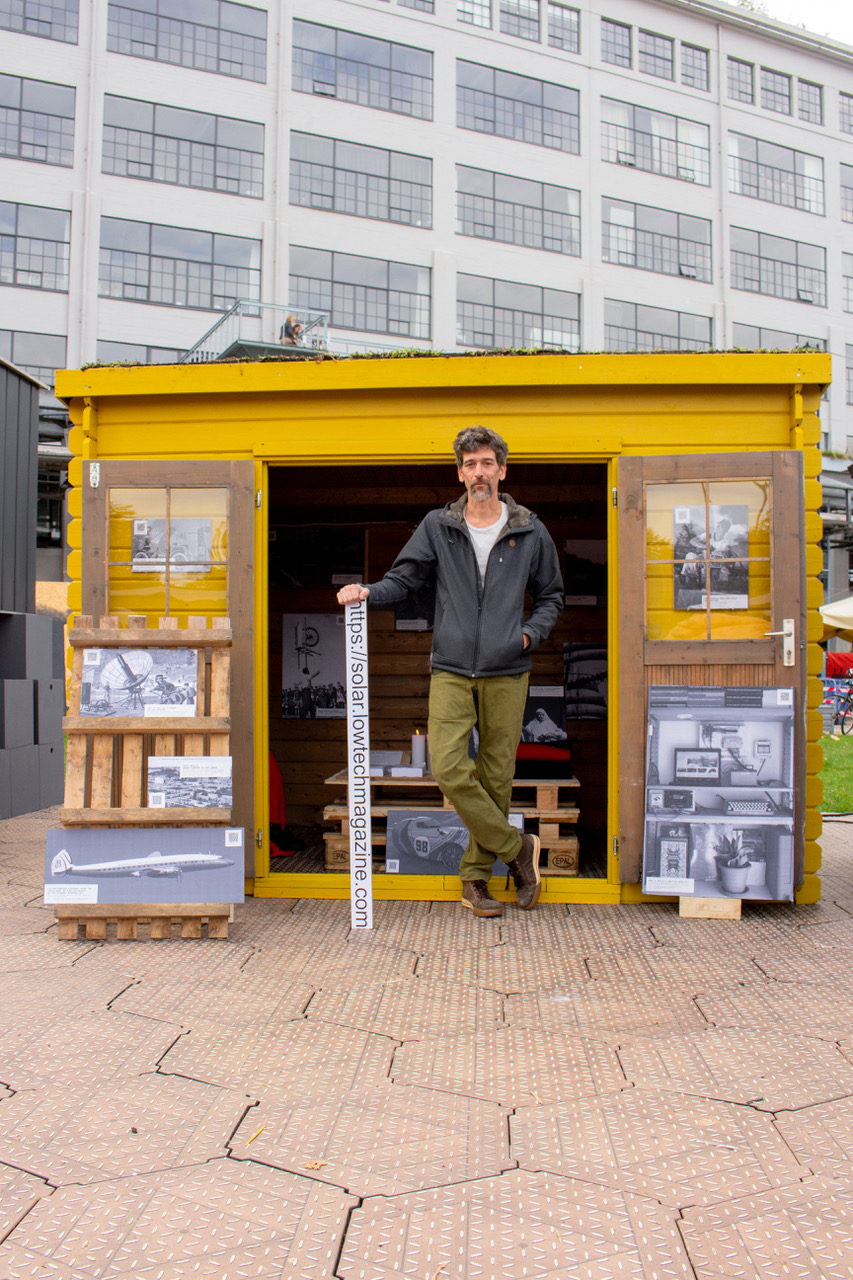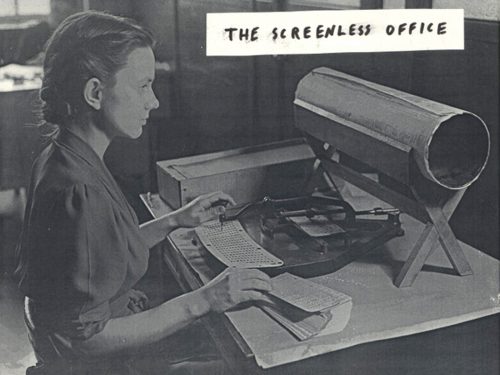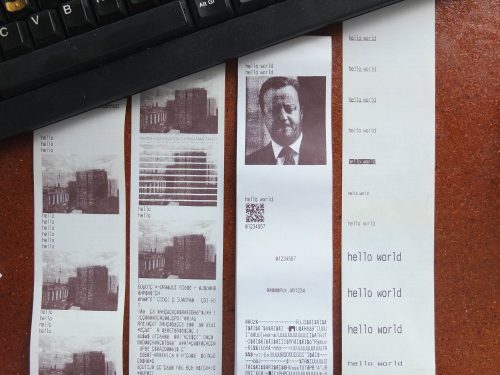Here’s our off-line portal to the solar powered website at the Dutch Design Week in Eindhoven. Designed and built in collaboration with Marie Verdeil. We formed part of Arne Hendriks’ Hara Hachi Bu village, which celebrates the Japanese principle that enough is enough. “Eat until you are 80% full”.
Off-line Portal to Solar Powered Website
This Website is Designed to Last
“My proposal is seven unconventional guidelines in how we handle websites designed to be informative, to make them easy to maintain and preserve. The guiding intention is that the maintainer will try to keep the website up for at least 10 years, maybe even 20 or 30 years. These are not controversial views necessarily, but are aspirations that are not mainstream—a manifesto for a long-lasting website.”
Read more: A Manifesto for Preserving Content on the Web, Jeff Huang.
See also: A clean start for the web, Tom MacWright.
The Truth Is Paywalled But The Lies Are Free
Quoted from Current Affairs:
To see just how much human potential is being squandered by having knowledge dispensed by the “free market,” let us briefly picture what “totally democratic and accessible knowledge” would look like. Let’s imagine that instead of having to use privatized research services, there was a single public search database containing every newspaper article, every magazine article, every academic journal article, every court record, every government document, every website, every piece of software, every film, song, photograph, television show, and video clip, and every book in existence.
The content of the Wayback Machine, all of the newspaper archives, Google Books, Getty Images, Project Gutenberg, Spotify, the Library of Congress, everything in WestLaw and Lexis, all of it, every piece of it accessible instantly in full, and with a search function designed to be as simple as possible and allow you to quickly narrow down what you are looking for. (e.g. “Give me: all Massachusetts newspaper articles, books published in Boston, and government documents that mention William Lloyd Garrison and were published from 1860 to 1865.”) The true universal search, uncorrupted by paid advertising. Within a second, you could bring up an entire PDF of any book. Within two seconds, you could search the full contents of that book.
Let us imagine just how much time would be saved in this informational utopia. Do I want minute 15 of the 1962 Czechoslovak film Man in Outer Space? Four seconds from my thought until it begins. Do I want page 17 of the Daily Mirror from 1985? Even less time. Every public Defense Department document concerning Vietnam from the Eisenhower administration? Page 150 of Frank Capra’s autobiography? Page 400 of an economics textbook from 1995? All in front of me, in full, in less than the length of time it takes to type this sentence. How much faster would research be in such a situation? How much more could be accomplished if knowledge were not fragmented and in the possession of a thousand private gatekeepers?
Read more: The Truth Is Paywalled But The Lies Are Free, Nathan J. Robinson, Current Affairs, August 2020. Via Ran Prieur.
Self-surveillance
Self-surveillance devices have already begun to betray us. Take Ashley LeMay, who bought an Amazon Ring surveillance camera because she thought it would keep her family safe. Instead, a grown man hacked into the camera she had placed in the bedroom of her three young daughters. He used it to stalk the children and even spoke to 8-year-old Alyssa through the camera, saying “I’m Santa Claus. Don’t you want to be my best friend?”
A family in Florida also had their Ring camera hacked by someone who broadcast the whole thing live on a podcast. He monitored the couple before starting to harass them, shouting racist epithets and activating their alarm. A woman in Georgia who installed a Ring to monitor her dog discovered that it had been hacked four separate times after a man spoke to her through the camera, saying “I can see you in bed.” Someone threatened a couple in Texas through their Ring, demanding a ransom in bitcoin.
Read more: Google Nest or Amazon Ring? Just reject these corporations’ surveillance and a dystopic future, Evan Greer, NBC News.
Digital Colonialism
 Free Basics, Facebook’s free, limited internet service for developing markets, is neither serving local needs nor achieving its objective of bringing people online for the first time.
Free Basics, Facebook’s free, limited internet service for developing markets, is neither serving local needs nor achieving its objective of bringing people online for the first time.
“Facebook is not introducing people to open internet where you can learn, create and build things,” said Ellery Biddle, advocacy director of Global Voices. “It’s building this little web that turns the user into a mostly passive consumer of mostly western corporate content. That’s digital colonialism.”
Read more: How Facebook’s free internet service has failed its users.
Previously: How to build a low-tech internet.
The Screenless Office
Current interface culture is dominated by a few large corporatate players: google/Alphabet, Apple, Microsoft. For many of us who spend countless hours working, socializing and amusing ourselves while using technical media, these powerful players have a huge influence on our experience of everyday life. Our perception of the world around us and how we see ourselves in, it is mediated by the decisions of a few privileged managers, programmers and designers, mostly male and white on the west coast of the United States. To suggest any other way of living in a networked society is to risk being percieved as blasphemous, uncool, out-of-touch, escapist or simply absurd. These interfaces have become so embedded in our conception of reality that we now have a crisis of the imagination, where it is difficult to even think of anything different.
Removing the screen is a radical gesture denying conformity to the dominating forces of contemporary interface culture. By getting rid of the display, we force digital text and images back into the old conventions of print culture. While this might have a superficial, nostalgic appeal, more importantly, it puts us into the role of acting like amateur media archeologists, investigating the history of modern visual, literary and bureaucratic systems both technical and social. At the same time, by taking newer forms of digital media and packing it into the old container of print, we open up a new experimental field of analog-digital hybrid forms. Our goal is to discover and invent novel ways of living in the digital world which might be more informal, expressive and embodied.
The Screenless Office is a system for working with media and networks without using a pixel-based display. It is an artistic operating system. The office presents a radically alternative form of everyday human interaction with media. It is constructed using free/libre/open hard- and software components, especially for print, databases, web-scraping and tangible interaction. Currently, it exists as a working prototype with software “bureaus” which allow a user to read and navigate news, web sites and social media entirely with the use of various printers for output and a barcode scanner for input. While our existing software allows for interesting new ways of consuming media, we are currently working to expand the system to make it capable of publishing content and thereby, enabling a provocative possibility for active participation in contemporary social life.
Quoted from: The Screenless Office. Via Jeu de paume espace virtuel, May 2017.








